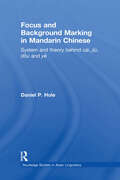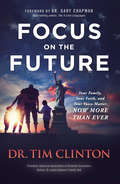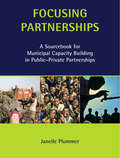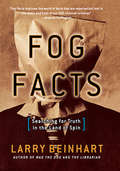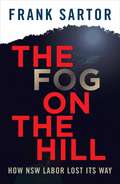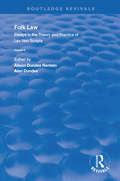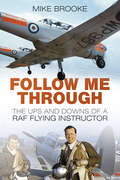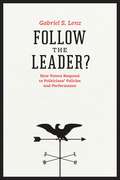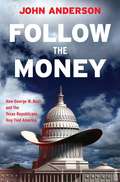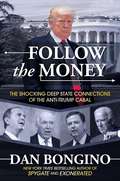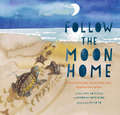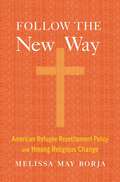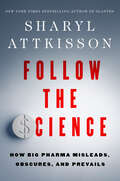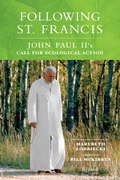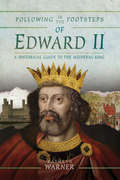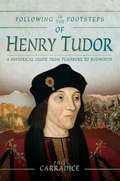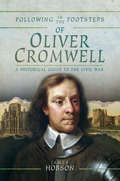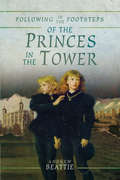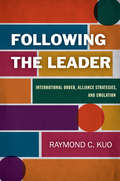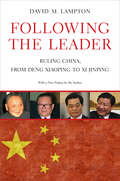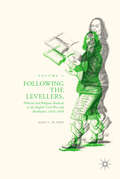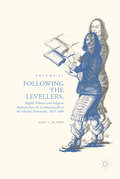- Table View
- List View
Focus and Background Marking in Mandarin Chinese: System and Theory behind cai, jiu, dou and ye (Routledge Studies in Asian Linguistics)
by Daniel HoleThis is an investigation into the grammaticalized system of focus-background agreement in Mandarin Chinese. The particles cái, jiù, dou and ye are, in a specific use type, shown to form the core of a highly systematic paradigm. This book is not just a valuable companion for anyone interested in core aspects of Mandarin Chinese grammar. It caters for the interests of theoretical linguists as well as for linguists from other fields with an interest in information-structure, focus and contrastive topics, and quantification. The outstanding characteristic of this book, viz. its effortless integration of findings from formal semantics without heavy formal load, makes it rewarding reading both for linguists with a less formal background, and for researchers with some knowledge of formal semantics.
Focus on the Future: Your Family, Your Faith, and Your Voice Matter Now More than Ever
by Dr. Tim ClintonAMERICA IS AT A CROSSROADS. The fight for our faith, family, and future is NOT OPTIONAL. Anxiety, depression, and suicide are at all-time highs. Divorce is prevalent. Children are growing up without fathers in the home, and the family unit as a whole is suffering. Dr. Tim Clinton, one of America&’s leading voices on faith and mental health, sounds the call for people around the country to step into the moment and rise up to focus on the future of America. What does the future hold for America? Will the current and coming cultural battles ultimately destroy or preserve our freedoms? From the president of the American Association of Christian Counselors Dr. Tim Clinton, an eminent American counselor and associate of Dr. James Dobson, believes this moment in American history is a reprieve. It is a moment to take stock. We must know the season we are in, maximize our opportunities, and ready ourselves for the cultural battles that are sure to befall us. It is a moment to prepare. It is a moment to focus on the future.And it starts with you! The future is bright, the victories are destined, and great things await the faithful who prepare. THE FUTURE, ANCHORED IN CHANGE AND HOPE, BELONGS TO THOSE WHO WILL STEP UP AND INTO THE MOMENT…NOW.FOREWORD BY DR. GARY CHAPMAN Best-selling author of The 5 Love Languages
Focus on the Wonder Years: Challenges Facing the American Middle School
by Catherine H. Augustine Louay Constant Jaana Juvonen Vi-Nhuan Le Tessa KaganoffYoung teens undergo multiple changes that seem to set them apart from other students. But do middle schools actually meet their special needs? The authors describe some of the challenges and offer ways to tackle them, such as reassessing the organization of grades K-12; specifically assisting the students most in need; finding ways to prevent disciplinary problems; and helping parents understand how they can help their children learn at home.
Focusing Partnerships: A Sourcebook for Municipal Capacity Building in Public-private Partnerships (Municipal Capacity Building Ser.)
by Steve Waddell Richard Slater Janelle Plummer Brad GentryDespite the increasing occurrence of policies aimed at mobilising the financial and human resources of the private sector, most urban local governments responsible for urban basic services in the South do not have the capacity to initiate and sustain partnerships. Nor do they understand how they can create partnerships that target the poor. This sourcebook provides practical information and guidance to do so. With extensive illustrative material from Africa, Asia and Latin America, it sets out a strategic framework for building municipal capacity to create pro-poor partnerships. It focuses on implementation rather than policy. It locates private sector participation within the broader urban governance and poverty reduction agenda. And it is above all concerned to supply information on the issues and processes involved in making the public?private partnership (PPP) approach appropriate for service delivery in developing countries. The second in a series of capacity-building sourcebooks, it will be invaluable for those concerned with the capacity of local levels of government: policy-makers, municipal authorities, development agencies and practitioners, and all those involved in urban governance and poverty reduction.
Fog Facts: Searching for Truth in the Land of Spin
by Larry BeinhartEveryone in the world knows what Bill Clinton did with Monica Lewinsky, or what happened to Brad and Jennifer, Katie and Tom. These factoids mysteriously capture the world's attention. But there's a flip side to this: fog facts. Fog facts are known but not known, the sort of things that journalists and political junkies know, but somehow the world does not. The "Downing Street Memo" is a fine example. This document revealed that the head of British intelligence had been informed by his Washington counterparts that the White House was cooking the books on the information it was using to justify a war in Iraq. Yet this was not big news in America. Why? In Fog Facts, Larry Beinhart tackles this question and shows how soft-core, public relations-style political lying has been raised to an art form.
Fog On The Hill: How NSW Labor Lost Its Way
by Frank SartorThe crisis in New South Wales Labor is so deep and has such significant ramifications that we need a massive dose of unadulterated, no-holds-barred honesty. The man who can deliver this honesty is Frank Sartor. An independent outsider who became a Labor minister in 2003, Sartor impressed and irritated insiders and the commentarial in equal measure. As minister for a number of important portfolios in successive Labor Governments, Sartor was perfectly positioned to see the way the Labor machine operated; the factionalism, the deals, the incompetence, the shortsightedness; as it went through four premiers in its last six floundering, backstabbing years. Sartor's thoughtful and acerbic pen skewers the failings and often-risible hubris of politicians. He pulls no punches in ascribing actions to a number of his former colleagues, but not as an exercise in denigrating opponents, but to illustrate the main actors, their mindsets, and the genesis of some of the New South Wales government's major mishaps. The Fog on the Hill is essential reading for anyone interested in the evolving landscape of Australian politics. It will be a ready handbook for political aspirants, public servants and all students of political science. Much more, though, it will fascinate all those who value our democracy and want our country and its governments to succeed.
Folk Law: Essays in the Theory and Practice of Lex Non Scripta: Volume II (Routledge Revivals #Vols. I & Ii)
by Alison Dundes Renteln Alan DundesOriginally published in 1994, Folk Law, a comprehensive two-volme collection of essays, examines the meeting place of folklore - the unwritten law of obligations and prohibitions that are understood and passed on - and jurisprudence. The contributors explore the historical significance and implications of folk law, its continuing influence around the globe, and the conflicts that arise when folk law diverges from official law. Valuable for students and scholars of law, folklore, or anthropology, Renteln and Dundes's extensive casebook marks a rare interdisciplinary approach to two important areas of research.
Follow Me Through: The Ups and Downs of a RAF Flying Instructor
by Mike BrookeFollowing his success as a Cold War Canberra pilot, Mike Brooke was dispatched to become a flying instructor at the Central Flying School in the 1970s. ‘Follow him through’, as he would instruct his trainees, as he experiences the quite literal ups and downs of teaching the Glasgow and Strathclyde Air Squadron. Learn how he battled the diminutive de Havilland Chipmunk in order to teach others how to fly the aircraft, then finally moved to instructing on the Canberra in its many marks. Here Mike takes the reader on a quite often bumpy journey as an instructor of pilots old and new. There are tales of flying, near accidents and less serious incidents that flying these old but still demanding aircraft bring. Following on from his debut book, A Bucket of Sunshine, he continues to use his personal experience to bring aviation to life and prove indispensable for any aviation enthusiast.
Follow the Leader? How Voters Respond to Politicians' Policies and Performance
by Gabriel S. LenzIn a democracy, we generally assume that voters know the policies they prefer and elect like-minded officials who are responsible for carrying them out. We also assume that voters consider candidates' competence, honesty, and other performance-related traits. But does this actually happen? Do voters consider candidates' policy positions when deciding for whom to vote? And how do politicians' performances in office factor into the voting decision? In Follow the Leader?, Gabriel S. Lenz sheds light on these central questions of democratic thought. Lenz looks at citizens' views of candidates both before and after periods of political upheaval, including campaigns, wars, natural disasters, and episodes of economic boom and bust. Noting important shifts in voters' knowledge and preferences as a result of these events, he finds that, while citizens do assess politicians based on their performance, their policy positions actually matter much less. Even when a policy issue becomes highly prominent, voters rarely shift their votes to the politician whose position best agrees with their own. In fact, Lenz shows, the reverse often takes place: citizens first pick a politician and then adopt that politician's policy views. In other words, they follow the leader. Based on data drawn from multiple countries, Follow the Leader? is the most definitive treatment to date of when and why policy and performance matter at the voting booth, and it will break new ground in the debates about democracy.
Follow the Leader?: How Voters Respond to Politicians' Policies and Performance (Chicago Studies In American Politics Ser.)
by Gabriel S. LenzIn a democracy, we generally assume that voters know the policies they prefer and elect like-minded officials who are responsible for carrying them out. We also assume that voters consider candidates' competence, honesty, and other performance-related traits. But does this actually happen? Do voters consider candidates’ policy positions when deciding for whom to vote? And how do politicians’ performances in office factor into the voting decision? In Follow the Leader?, Gabriel S. Lenz sheds light on these central questions of democratic thought. Lenz looks at citizens’ views of candidates both before and after periods of political upheaval, including campaigns, wars, natural disasters, and episodes of economic boom and bust. Noting important shifts in voters’ knowledge and preferences as a result of these events, he finds that, while citizens do assess politicians based on their performance, their policy positions actually matter much less. Even when a policy issue becomes highly prominent, voters rarely shift their votes to the politician whose position best agrees with their own. In fact, Lenz shows, the reverse often takes place: citizens first pick a politician and then adopt that politician’s policy views. In other words, they follow the leader. Based on data drawn from multiple countries, Follow the Leader? is the most definitive treatment to date of when and why policy and performance matter at the voting booth, and it will break new ground in the debates about democracy.
Follow the Money: How George W. Bush and the Texas Republicans Hog-Tied America
by John AndersonWith its barbecues, new Cadillacs, and $4,000 snakeskin cowboy boots, Texas is all about power and money -- and the power that money buys. This detailed and wide-scope account shows how a group of wealthy Texas Republicans quietly hijacked American politics for their own gain. Getting George W. Bush elected, we learn, was just the tip of the iceberg. . . . InFollow the Money,award-winning journalist and sixth-generation Texan John Anderson shows how power in Texas has long been vested in the interconnected worlds of Houston's global energy companies, banks, and law firms -- not least among them Baker Botts, the firm controlled by none other than James A. Baker III, the Bush family consigliere. Anderson explains how the Texas political system came to be controlled by a sophisticated, well-funded group of conservative Republicans who, after elevating George W. Bush to the American presidency, went about applying their hardball, high-dollar politicking to Washington, D. C. When George Bush reached the White House, he brought with him not only members of the Texas legal establishment (among them former White House counsel Harriet Miers and Attorney General Alberto Gonzales) but empowered swarms of Republican lobbyists who saw in Bush's arrival a way to make both common cause and big money. Another important Beltway Texan was Congressman Tom DeLay, the famous "Exterminator" of Houston's Twenty-second District, who became majority leader in 2003 and controlled which bills made it through Congress and which did not. DeLay, in turn, was linked to lobbyist Jack Abramoff, who used his relationships with both DeLay and Karl Rove on behalf of his clients, creating a shockingly corrupt flow of millions of dollars among Republican lobby groups and political action committees. Washington soon became infected by Texas-style politics. Influence-peddling, deal-making, and money-laundering followed -- much of it accomplished in the capital's toniest restaurants or on the fairways and beaches of luxurious resorts, away from the public eye. The damaging fallout has, one way or another, touched nearly all Americans, Democrat and Republican alike. Follow the Moneyreveals the hidden web of influence that links George W. Bush, Dick Cheney, and the Texas Republicans to the 2000 recount in Florida; the national tort-reform movement; the controversial late-hour, one-vote passage of the Medicare Reform Act; congressional redistricting schemes; scandals in the energy sector; the destruction of basic constitutional protections; the financial machinery of the Christian right; the manipulation of American-Indian tribe casinos; the Iraq War torture scandals; the crooked management of the Department of the Interior; the composition of the Supreme Court; and the 2007 purges of seasoned prosecutors in the Justice Department. Some of the actors are in federal prison, others are on their way there, and many more have successfully eluded a day of reckoning. Told with verve, style, and a not-so-occasional raised eyebrow, Anderson's account arcs directly into tomorrow's headlines. Startling in its revelations,Follow the Moneyis sure to spark controversy and much-needed debate concerning which direction this country goes next.
Follow the Money: The Shocking Deep State Connections of the Anti-Trump Cabal
by Dan BonginoAs seen on The Ben Shapiro Show! Follow the Money exposes the labyrinth of connections between D.C.&’s slimiest swamp creatures—Democrat operatives, lying informants, desperate and destructive FBI agents, Obama power brokers, CIA renegade John Brennan, George Soros, and more—who conspired to attack Trump by manufacturing one bogus scandal after another.Bestselling author, podcast favorite, and Fox News contributor Dan Bongino delivers the third and most shocking of his acclaimed series chronicling the Deep State war against Donald Trump. Starting with the Trump impeachment hearings, Bongino works forward and backward to piece together the connections of a vast, well-funded cabal of wealthy Democrats and D.C. swamp elite to the non-stop deluge of manufactured scandals launched specifically to attack, destabilize, and ultimately remove Trump and his administration. Zooming in on Ukraine, Bongino unspools a complex sequence of corruption—from the miraculous &“discovery&” of a mysterious black ledger that linked financial transactions to Trump campaign insider Paul Manafort and cast a shadow over the entire Trump team, to Joe Biden&’s unexamined quid pro quo interference with Kyiv politics as he threatened to withhold a loan unless a prosecutor was removed from office. The former Secret Service agent exposes how Glenn Simpson, the corrupt cheerleader behind the lie-filled Steele dossier, wrangled millions from top Democrat donor George Soros to meddle in Ukraine politics. Bongino also reveals Soros&’s desperate multimillion-dollar plan to stop Trump&’s re-election. Using FBI documents, Bongino reveals the outrageous actions of Robert Mueller&’s investigators, who sat on evidence that proved the supposedly damning Trump Tower meeting between a Russian lawyer and senior campaign officials was nothing more than a twenty-minute waste of time for all involved. Other chapters delve into the disturbing presence of Obama&’s fixer, obstruction angel Kathryn &“Kathy&” Ruemmler, who represents a rogues gallery of Russiagate political operatives; the FBI&’s inside source on the National Security Council, Anthony Ferrante, who dedicated himself to the fruitless task of trying to prove the Steele dossier was legitimate; and &“Special Agent 1&” Stephen M. Somma&’s curious obsession with Lt. Gen. Michael Flynn, which was stoked by a Flynn-fixated paid operative named Stefan Halper. Flynn is the centerpiece of one of the book&’s most revealing chapters, in which Bongino deconstructs the FBI&’s elaborate takedown of Trump&’s National Security Advisor, revealing how and why the three-star general was set up not once…but three times. Bongino also returns to the last, desperate attempt to derail Trump—the impeachment trial—and uncovers Adam Schiff&’s lies and the Ukraine-call whistleblower&’s multiple secret ties to never-Trumpers and Schiff himself. In the final chapter, Bongino unveils the newest front to stop Trump: the unleashing of COVID-19 from China and how the disease mutated from a killer plague in Wuhan to a weapon to destroy America&’s economy and, with it, Trump&’s re-election chances. Follow the Money displays dizzying detective work from a truly relentless, passionate, and patriotic reporter. An astonishing chronicle of the relentless war to destroy Donald Trump and his administration, this exposé is a must-read for anyone who wants to unravel the most shocking and corrupt campaign to unseat a sitting president in American history.
Follow the Moon Home: A Tale of One Idea, Twenty Kids, and a Hundred Sea Turtles
by Deborah Hopkinson Philippe CousteauAcclaimed activist Philippe Cousteau and renowned author Deborah Hopkinson team up to offer a story of the powerful difference young people can make in the world. Meet Viv, who has a new home and a new school by the sea, and follow her as she finds her way in a new place and helps bring together a whole community to save the sea turtles of the South Carolina coast. Plus, this is the fixed format version, which looks almost identical to the print edition.
Follow the New Way: American Refugee Resettlement Policy and Hmong Religious Change
by Melissa May BorjaAn incisive look at Hmong religion in the United States, where resettled refugees found creative ways to maintain their traditions, even as Christian organizations deputized by the government were granted an outsized influence on the refugees’ new lives.Every year, members of the Hmong Christian Church of God in Minneapolis gather for a cherished Thanksgiving celebration. But this Thanksgiving takes place in the spring, in remembrance of the turbulent days in May 1975 when thousands of Laotians were evacuated for resettlement in the United States. For many Hmong, passage to America was also a spiritual crossing. As they found novel approaches to living, they also embraced Christianity—called kev cai tshiab, “the new way”—as a means of navigating their complex spiritual landscapes.Melissa May Borja explores how this religious change happened and what it has meant for Hmong culture. American resettlement policies unintentionally deprived Hmong of the resources necessary for their time-honored rituals, in part because these practices, blending animism, ancestor worship, and shamanism, challenged many Christian-centric definitions of religion. At the same time, because the government delegated much of the resettlement work to Christian organizations, refugees developed close and dependent relationships with Christian groups. Ultimately the Hmong embraced Christianity on their own terms, adjusting to American spiritual life while finding opportunities to preserve their customs.Follow the New Way illustrates America’s wavering commitments to pluralism and secularism, offering a much-needed investigation into the public work done by religious institutions with the blessing of the state. But in the creation of a Christian-inflected Hmong American animism we see the resilience of tradition—how it deepens under transformative conditions.
Follow the Science: How Big Pharma Misleads, Obscures, and Prevails
by Sharyl AttkissonEmmy Award-winning investigative journalist and New York Times bestselling author Sharyl Attkisson exposes the corruption that has ruled the pharmaceutical industry for decades.Through blatant lies, deep cover-ups, and high-level collusion with government and media, Big Pharma has continuously put profits over people with dangerous results. Now, with her signature investigative rigor and uncompromising commitment to the facts, Sharyl Attkisson takes readers on an shocking journey through the dark underbelly of the pharmaceutical industry.Follow the Science recounts, in exacting detail, how far the pharmaceutical industry and its supporters in medicine, media, and government will go to protect their profits. Attkisson provides shocking examples that reveal the disturbing callousness our government, public health officials, and top researchers are capable of when it comes to the most vulnerable among us. And she explains, in a graphic sense, how some of the most trusted within our society are willing to commit life-threatening ethics violations. When caught, they circle the wagons and marshal forces to defend their bad acts and take steps to cruelly silence the injured and smear those who would expose them.This book includes exclusive, eye-opening evidence including:Financial ties between well-known vaccine promoters and the vaccine industryOutrageous collusion between the news media and Big PharmaHow Big Pharma teaches slanted information to med students and doctorsGovernment officials secretly admitting vaccines caused some cases of autismThe first child seriously injured by Covid vaccines while in Pfizer's studyThe secretive money backing seemingly independent studies and nonprofitsFollow the Science will challenge your assumptions, open your eyes, and inspire you to take action. With its powerful message of truth and justice, this book is a must-read for anyone who cares about the future of our healthcare system and their own family's health.
Following St. Francis
by Marybeth Lorbiecki Bill MckibbenThe first book to present the environmental teachings of this beloved pope--the newly canonized St. John Paul--and the hopeful words of Pope Francis, thoughtfully synthesized into a complete spiritual and practical vision for the future. "The ecological crisis is a moral crisis." So said Pope John Paul II, an unexpected and fierce advocate for ecological responsibility throughout his papacy. Rather than seeing environmental concerns as "earthly" or "political," he showed that they are in fact at the heart of the covenant between human beings and their Creator. In dozens of addresses, sermons, and encyclicals, Pope John Paul II made specific recommendations on twelve interconnected ecological issues, including climate change, ocean destruction, water scarcity, poverty, the role of women, and war. He showed that each could become a source of spiritual, social, and economic transformation.Following St. Francis integrates Pope John Paul II's vision with that of St. Francis of Assisi, patron saint of ecology, and the galvanizing words of Pope Francis. Accessible and illuminating, it speaks to hearts and minds, to nonreligious readers as well as devoted Catholics, incorporating Scripture, current science, and inspiring stories of solutions and restoration. Marybeth Lorbiecki unifies and champions the late, beloved pope's view that all life issues are related and that all forms of life deserve care. And if we work with God and each other to protect them, we can "renew the face of the earth" (Psalm 104:30).From the Hardcover edition.
Following in the Footsteps of Edward II: A Historical Guide to the Medieval King (Following In The Footsteps Ser.)
by Kathryn Warner&“Informed and informative . . . a meticulous example of outstanding scholarship, and an inherently fascinating read.&” —Midwest Book Review Edward II is famously one of England&’s most unsuccessful kings, as utterly different from his warlike father Edward I as any man possibly could be, and the first English king to suffer the fate of deposition. Highly unconventional, even eccentric, he was an intriguing personality, and his reign of nineteen and a half years, from 1307 to 1327, was a turbulent period of endless conflict and the king&’s infatuation with his male favorites, which ended when his own queen led an invasion of his kingdom. Following in the Footsteps of Edward II presents a new take on this most unconventional and puzzling of kings, from the magnificent Caernarfon Castle where he was born in 1284 shortly after his father conquered North Wales, to his favorite residences at King&’s Langley in Hertfordshire and Westminster, to the castle of Berkeley in Gloucestershire where he supposedly met his brutal death in September 1327, to Gloucester Cathedral, where his tomb and alabaster effigy still exist and are among the greatest glories surviving from medieval England.
Following in the Footsteps of Henry Tudor: A Historical Journey from Pembroke to Bosworth (Following In The Footsteps Ser.)
by Phil CarradiceThe story of the first monarch of the House of Tudor, and his dramatic journey to the throne. The story of Henry Tudor&’s march to Bosworth and the throne of England began long before the fateful summer of 1485. Pembroke Castle, the gigantic fortress where he was born in 1457 and spent his childhood years, lay some twelve miles inland from the spot where Henry is believed to have landed in Milford Haven when he came to challenge Richard III in August 1485. Henry&’s landing and progress to Bosworth Field were a gamble, but one that had to be taken if the House of Lancaster was to survive. In Following in the Footsteps of Henry Tudor, we hear of the many fascinating stories from Henry&’s march and the places he visited—a journey that took just over two weeks. It was a time of treachery and double dealing, but it culminated with the establishment of the Tudor dynasty, the end of the Wars of the Roses, and the beginnings of the modern world.
Following in the Footsteps of Oliver Cromwell: A Historical Guide to the Civil War (Following In The Footsteps Ser.)
by James HobsonA unique biography of the military commander and politician who remains one of Britain&’s most controversial figures centuries after his death. One of the most important figures in British history, Oliver Cromwell was both soldier and politician and the only non-Royal ruler of Britain in a thousand years. His actions and ideas still have political and social consequences today, and his legacy still divides people. Love him or loathe him, Cromwell still matters. This book is a history of his life through the places in Britain and Ireland where he lived, visited, ruled, or fought. Following in the Footsteps of Oliver Cromwell begins in Huntingdon in 1599, with the respectable but unimportant Cromwell family living under the shadow of richer relatives. Civil War and Cromwell&’s controversial successes at Marston Moor, Naseby, Basing House, and Worcester transform him into the most powerful person in Britain, saving him from obscurity and moving him from a modest house in Ely to Hampton Court Palace. Cromwell is involved in the execution of King Charles I outside the Banqueting House, his own coronation in Westminster Hall, and bloody slaughter in Ireland. Even his death in 1658 does not end the controversy—as his enemies take revenge on his corpse and the debate about his legacy begins.
Following in the Footsteps of the Princes in the Tower (Following In The Footsteps Ser.)
by Andrew BeattieA journey into the 15th century, as the heir to the throne and his brother are imprisoned in the Tower of London—their fate a mystery to this day. The story of the Princes in the Tower is well known—the grim but dramatic events of 1483, when the twelve-year-old Edward Plantagenet was taken into custody by his uncle, Richard of Gloucester, and imprisoned in the Tower of London along with his younger brother, have been told and retold. The true events of that year remain shrouded in mystery, and the end of the young princes&’ lives are an infamous part of the Wars of the Roses and Richard III&’s reign. Yet little about their lives is commonly known. Following the Footsteps of the Princes of the Tower tells the story in a way that is wholly new: through the places where the events actually unfolded. It reveals the lives of the princes through the places they lived and visited. From Westminster Abbey to the Tower of London itself, and from the remote English castles of Ludlow and Middleham to the quiet Midlands town of Stony Stratford, the trail through some of England&’s most historic places throws a whole new light on this most compelling of historical dramas.
Following the Leader: International Order, Alliance Strategies, and Emulation
by Raymond C. KuoNations have powerful reasons to get their military alliances right. When security pacts go well, they underpin regional and global order; when they fail, they spread wars across continents as states are dragged into conflict. We would, therefore, expect states to carefully tailor their military partnerships to specific conditions. This expectation, Raymond C. Kuo argues, is wrong. Following the Leader argues that most countries ignore their individual security interests in military pacts, instead converging on a single, dominant alliance strategy. The book introduces a new social theory of strategic diffusion and emulation, using case studies and advanced statistical analysis of alliances from 1815 to 2003. In the wake of each major war that shatters the international system, a new hegemon creates a core military partnership to target its greatest enemy. Secondary and peripheral countries rush to emulate this alliance, illustrating their credibility and prestige by mimicking the dominant form. Be it the NATO model that seems so commonsense today, or the realpolitik that reigned in Europe of the late nineteenth century, a lone alliance strategy has defined broad swaths of diplomatic history. It is not states' own security interests driving this phenomenon, Kuo shows, but their jockeying for status in a world periodically remade by great powers.
Following the Leader: Ruling China, from Deng Xiaoping to Xi Jinping
by David M. LamptonWith unprecedented access to Chinese leaders at all levels of the party and government, best-selling author David Lampton tells the insider story of China's political elite from their own perspectives. Based on over five hundred interviews, Following the Leader offers a rare glimpse into how the attitudes and ideas of those at the very top have evolved over the past four decades. Here China's rulers explain their strategies and ideas for moving the nation forward, share their reflections on matters of leadership and policy, and discuss the challenges that keep them awake at night. We learn of a China where party rulers have become progressively less dominant, bureaucracy and society have become more fragmented, and the people are becoming more powerful. As the Chinese Communist Party installs its new president, Xi Jinping, for a ten-year term, questions abound. How will the country move forward as its explosive rate of economic growth begins to slow? How does it plan to deal with international calls for human rights reform and cope with an aging and increasingly polarized population? In this unprecedented book we learn for the first time how China's leaders see the nation's political future, as well as about its strategic influence on the world at large.
Following the Leader: Ruling China, from Deng Xiaoping to Xi Jinping
by David M. LamptonWith unique access to Chinese leaders at all levels of the party and government, best-selling author David M. Lampton tells the story of China’s political elites from their own perspectives. Based on over five hundred interviews, Following the Leader offers a rare glimpse into how the attitudes and ideas of those at the top have evolved over the past four decades. Here China’s rulers explain their strategies and ideas for moving the nation forward, share their reflections on matters of leadership and policy, and discuss the challenges that keep them awake at night. As the Chinese Communist Party installs its new president, Xi Jinping, for a presumably ten-year term, questions abound. How will the country move forward as its explosive rate of economic growth begins to slow? How does it plan to deal with domestic and international calls for political reform and to cope with an aging population, not to mention an increasingly fragmented bureaucracy and society? In this insightful book we learn how China’s leaders see the nation’s political future, as well as about its global strategic influence.
Following the Levellers, Volume One: Political and Religious Radicals in the English Civil War and Revolution, 1645–1649
by Gary S. De KreyThis book reinterprets the Leveller authorships of John Lilburne, Richard Overton and William Walwyn, and foregrounds the role of ordinary people in petitioning and protest during an era of civil war and revolution. The Levellers sought to restructure the state in 1647-49 around popular consent and liberty for conscience, especially in their Agreement of the People. Their following was not a ‘movement’ but largely a political response of the sects that had emerged in London’s rapidly growing peripheral neighbourhoods and in other localities in the 1640s. This study argues that the Levellers did not emerge as a separate political faction before October 1647, that they did not succeed in establishing extensive political organisation, and that the troop revolt of spring 1649 was not really a Leveller phenomenon. Addressing the contested interpretations of the Levellers throughout, this book also introduces Leveller history to non-specialist readers.
Following the Levellers, Volume Two: English Political and Religious Radicals from the Commonwealth to the Glorious Revolution, 1649–1688
by Gary S. De KreyThe Levellers sought to restructure the state in 1647-9 around popular consent and liberty for conscience, especially in their Agreement of the People. Following the Levellers, Volume Two examines the later political efforts of Leveller spokesmen like John Lilburne, John Wildman, and Richard Overton, and their followers. Far from ending in the 1649 troop revolts, the Leveller impact continued in the Interregnum climacterics of 1653 and 1659-60, times of acute political and religious unsettlement. Indeed, Leveller ideas resurfaced in Restoration political and religious crises in 1678-83 and again in 1687-8 and flourished in populations that once followed the Levellers. Analysis of London, army, and county Levellers reveals connections to subsequent outbursts of unrest. Sectarian communities in London’s peripheral neighbourhoods and nearby counties sustained the Leveller ethos, and ordinary people like those who followed the Levellers remained active in petitioning and protest about political and religious liberties through the Glorious Revolution.
